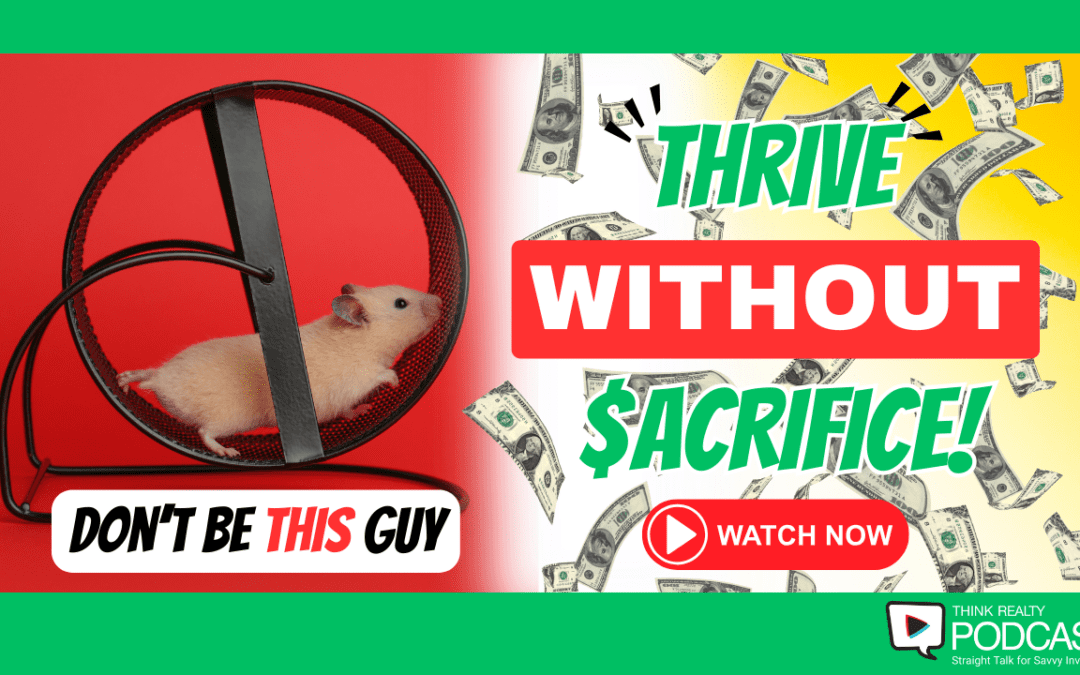I’ve been getting a lot of questions lately asking about wholesaling, such as:
- Why should I wholesale?
- Is wholesaling real estate worth it?
- Can I make money in it?
- Do I have to invest capital?
- What does it even mean to be a wholesaler? Is it the same as being an investor?
First, let me say that wholesaling is a fantastic way for folks who are newly interested in the real estate world to get involved without having to spend a whole lot of money, without a whole lot of risk to their own capital.
So, what is wholesaling? And why should you even be interested in wholesaling? Well, wholesaling is a method by which you make money by introducing a buyer of real estate to a seller of real estate, with the transaction being completed through either a title company or an attorney. And that’s pretty much it.
You’re bringing a buyer and a seller together to the closing table where the buyer will purchase the property from the seller. And for making that transaction happen, you are paid a fee.
How does wholesaling work?
Now how does all of this work? Right now the conversations about wholesaling are happening throughout the digital world—the inter-webs, as I like to call them. It’s happening on Twitter forums, different podcast forums and lots of other places.
So, back to our discussion of wholesaling: You’ve got a buyer and a seller, you’ve got a title company or an attorney and everybody’s working together to make this transaction happen. So where do you fit in if you’re just starting out and you’ve only recently begun paying attention to the real estate world?
Here’s how I see it: For you—the wholesaler—the biggest benefit that you have is time, whereas the buyer may not necessarily have that time and the seller sure as heck doesn’t have that time. Maybe the seller is in a very distressed position or distressed state of mind or just wants to exit and get rid of the property, but can’t really find a buyer or just doesn’t want to work with an agent because of that extra expense
So you as a wholesaler can go talk to these folks. You can go knock on doors, you can say, “Hey! You know what? I have a proposition for you. Are you selling your property, or do you know of anyone else who is selling their property?”
Techniques for finding sellers
Door-knocking is really a fantastic way of finding sellers. Another really good way is to get probate leads and do a lot of mail-outs to sellers whose family members may have passed away. There are a million-and-one ways to find leads.
Another good technique is to call different real estate agents and ask, “What properties do you know of that are pocket listings? I might be able to give you a good offer before you list. Maybe we can work on putting that together with one of my buyers.” And it’s great because then they don’t even have to go through the motion of putting it on the MLS and have buyers already on deck, ready to go right now.
And so what’s unique about a wholesaler is that you can be super-flexible, you can be a chameleon, and you can find different ways to solve different problems for both the buyer and the seller. And you will be amazed at what that opens up for you.
I have wholesalers right now working with me, selling me leads, selling me five, 10, 15 properties a month.
And this is absolutely something that you can do, too.
Talking to sellers is really going to be kind of your mojo. You’re going to have to figure out how comfortable you are in your own skin talking to these folks and convincing them your offer is compelling enough for them to go with you and to give you a contract to market their property rather than hiring an agent.
Where do you find the buyers?
Now you need to go find buyers, like me. I will tell you that one of the biggest issues that we buyers face is not being able to find good, solid leads. So that’s where I rely on wholesalers to help, along with agents. If you can build relationships with sellers and provide buyers like me with a steady stream of deals, I’m buying from you all day.
So where do you find these elusive cash buyers? Well, here’s a quick tip: meet-up groups and your local real estate investor associations, as well as real estate agencies.
So with those strategies, if you’re just hitting those phones and shaking those hands, you’re absolutely going to find buyers. So get on the phones, hit the phones hard and find buyers.
The best way to find sellers? Really, three ways, in my experience: door-knocking, sending out mailers and putting up bandit signs. And also marketing to other wholesalers as well. Wholesalers are boots on ground, if you can build a good rapport with them, they’re going to give you the world.
That’s what’s happening for us in Atlanta. I spend a lot of time with my agents and my wholesalers. And guess what happens as a result of that? They’re calling me first on all of the deals that make sense. We don’t have to spend any more money on marketing because we are building relationships with people.
So, once you have identified a seller and potential buyers, what do you do next? You need to have a purchase and sellers agreement (PSA) with your seller and with your buyer, and then in most cases, you’re going to make a spread in between. For example, let’s say your “buy price” for your seller is $100,000 and your “sell price” for your buyer is $110,000. That means there’s a $10,000 wholesale fee in there for you.
Closing the transaction
And there are two ways you can close that transaction: you can do an assignment fee or you can do a double-closing. I like No. 1, because an assignment fee is super-easy and doesn’t cost you anything. You just have a candid conversation with your buyer and say, “Hey, listen, I’m going to be assigning you this deal, and are these numbers OK for you?” Sometimes the size of the assignment might be a little bit larger because I did a lot of legwork on that property, so I ask whether it is OK with the seller for me to assign you this deal even though the margin might be a little bit larger. Most of the time, if the numbers make sense, they’re going to say, “OK, yeah.”
The only time you might want to double-close is when you don’t want the investor to know how much you’re making. But generally speaking, I don’t really like doing that. A double-close will incur certain costs for a wholesaler, and that can get pretty expensive—between $1,000 and $2,000, depending on the size of the transaction. So if you’re going to do an assignment or if you’re going to double-close, make sure everybody picks the attorney or the attorneys work together or the title companies work together. And they will give you the next steps.
Every transaction is different, and something always is going to happen in those transactions.
About the Author
Abhi Golhar is the host of Think Realty Radio and Managing Partner of Summit & Crowne. Abhi uses a “value-added” approach to invest in real estate renovation, new construction and development opportunities in the Southeast United States. He actively educates and works with investors to deploy market-driven strategies that yield success. He holds a B.S. in Electrical Engineering from the University of Michigan. You can find him on Twitter, Snapchat, and Instagram – @AbhiGolhar.























0 Comments